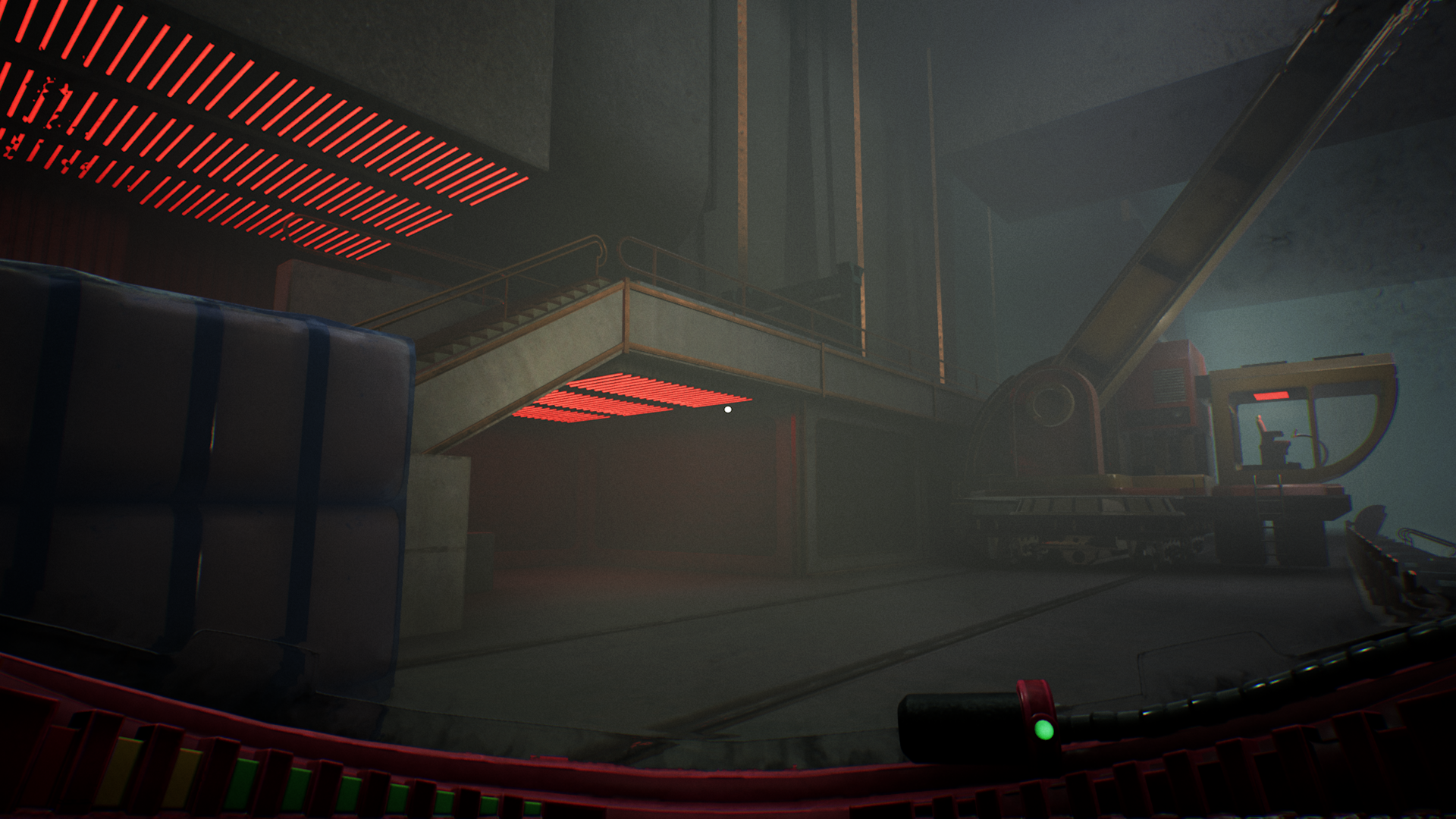It’s been a couple weeks since I rolled credits on Return to Grace, Creative Bytes Studios’ third game. It’s a nominal first-person adventure game where you play a future archaeologist on a suicide mission to Jupiter’s largest moon, Ganymede, to make contact with a long-dormant, possibly dead artificial intelligence that once controlled the entire Solar system. My initial reaction to finishing this game was that of a shrug; in the weeks since, it’s oscillated between merely acknowledging that I had the experience of playing the game and being mildly irritated by how the story plays into modern AI propaganda.
But like, I don’t know – how much of that is the game’s fault, and how much of that is my antipathy towards AI bullshit as it’s been marketed by grifters? Can I really let my opinion of a game be colored by outside factors that almost certainly had little bearing on the story as it was being written?
The thing is, like, it’s fine. The game is fine! You walk around various retrofuturistic environments. Everything looks like the 1960s. There are some neat analog interfaces. Your character, Dr. Adie Ito, talks to the various personality cores of the titular Grace as she makes her way through the giant facility. You solve some puzzles and make some basic choices that possibly change the ending. You listen to some audio logs. You learn what the station on Ganymede was for and how it all came to an end. You reconnect those personality cores you met to Grace at her central hub, and then as the credits are about to roll, Adie’s presented with an almost-impossible choice. As far as these kinds of games go, it was effective at delivering the narrative to me! And yet for all of that, I walked away from it feeling the way I described above.
Despite the fact the game’s story is all about an artificial intelligence that once controlled the entire Solar system, nothing about the game itself screams “AI-generated.” The voice acting is all real, and it’s all pretty good. The aesthetic is clearly developed by a human designer with an understanding of 1960s-era retrofuturism in particular. There are no fingers where there shouldn’t be fingers, no strange melting body shapes where there shouldn’t be. And of course it wouldn’t be. Creative Bytes has made two pretty good games prior to this, with The Vale: Shadow of the Crown specifically crafted to provide blind and visually-impaired players with a satisfying action experience, and they’ve by all accounts worked closely with their local creative and acting communities to bring all their games to life. I don’t expect Return to Grace was made any differently; I certainly can detect no cut corners filled in with gen-AI.
But I can’t help being bothered. The truth about what AI actually is and how it actually works has been intentionally obfuscated by grifters using the science-fiction/fantasy version of what we’ve all grown to expect from AI. While the Machine Intelligence Research Institute and Association for the Advancement of Artificial Intelligence scare people with no other knowledge about the technology with stories of the impending singularity, open scam artists worm their way into executive boardrooms presenting their snake oil as panacea. People have lost their jobs en masse to this shit. To technology that can be easily tricked, actively hallucinates incorrect information, and consistently produces worse results than human creators. It’s insulting, it’s horrifying, it’s infuriating.
I think also I’m just rubbed wrong by how this particular AI story turns out. I don’t want to spoil the whole thing, but in one of the endings, when we’ve finally reconfigured Grace’s personality matrix and brought it back online, Adie gets to ask the burning question: why did Grace abandon the Solar system a thousand years prior and let humanity sink into a new dark age? Grace all but replies: “because y’all were getting too soft.”
So maybe that’s part of my irritation, discovering that the solution to the game’s driving mystery is that a computer system that controlled the entire Solar system’s infrastructure had gone Galt, leaving all of humanity to twist in the wind. And our character was seconds away from bringing it back after a thousand years of an entire society attempting to recover from that action. We are suddenly cast as the villain here. Like maybe we shouldn’t reintegrate a piece of software that decided to abandon everything from planetary life support systems to inter-system supply chains? Just a thought. But we’re not actually present for that choice, as the credits roll as soon as Grace asks if we want to do that, so – phew, absolution, I guess. A perfectly safe choice, maybe even too safe, even if the alternative would have just made me even more irritated.
This isn’t a product review, primarily because I don’t really care if anyone else plays it or doesn’t – for what it’s worth, the game is on Game Pass and it was a quick one from start to finish, only about four or five hours or so. There’s certainly no harm in playing it for yourself and drawing your own conclusions from it. Maybe you’ll like what you find! As for me, I’ve since moved back into the territory of “exclusively playing massive games that each take several weeks to finish while you don’t have enough hours in the day to do all that anymore.”






It’s short and straightforward enough that I could have forgiven the ham fisted narration. Felt like there was a couple of tries at “maybe AI are not good?” and a couple of times where I thought “oh maybe it’s not *that* predictable, oh no wait, it is”.
What pissed me off was “children are growing up in 3 m wide tunnels, farmers are struggling to make ends meet, can’t get any better than this really, life’s too perfect, byeeeeee”
Yeah, that’s true. I had forgotten the child tunnels. Wild shit.